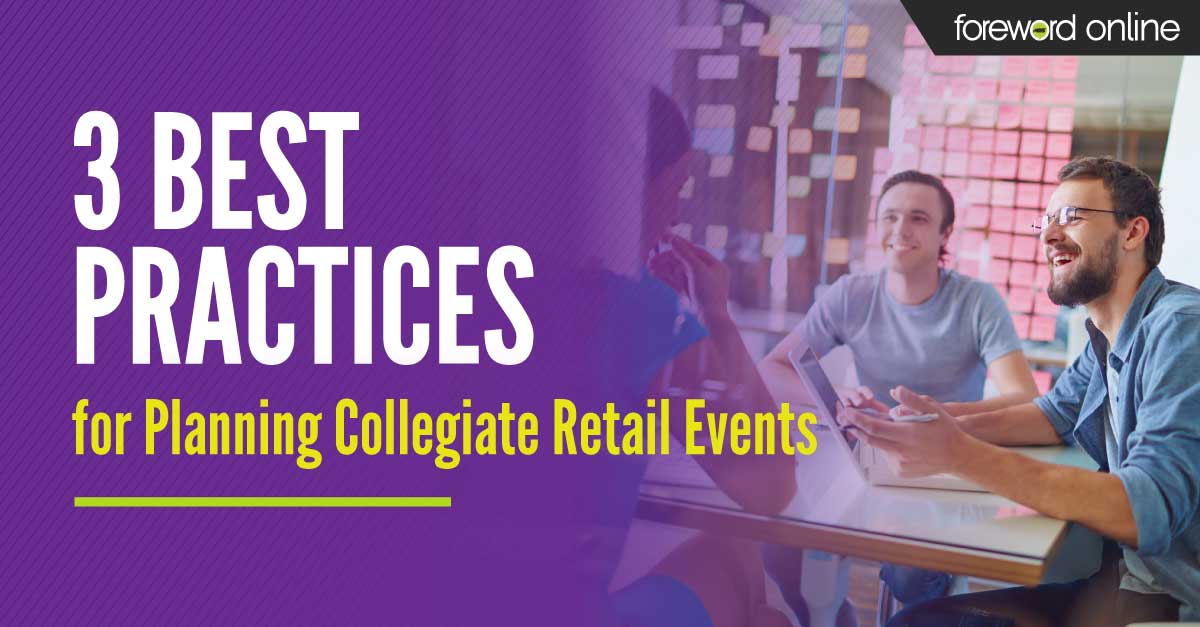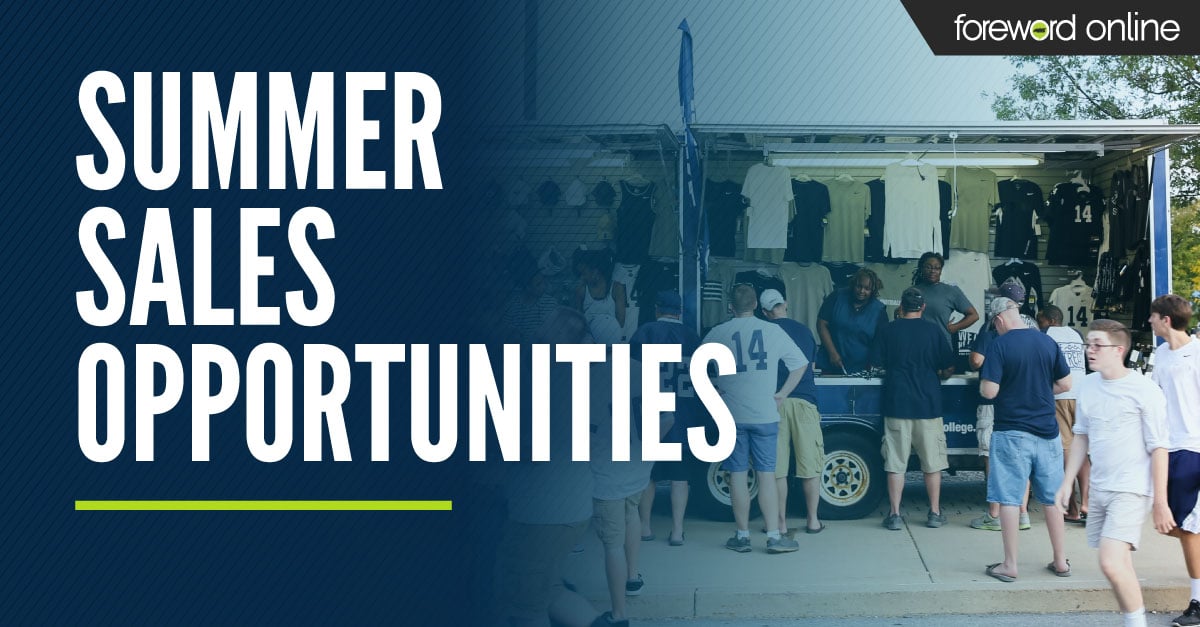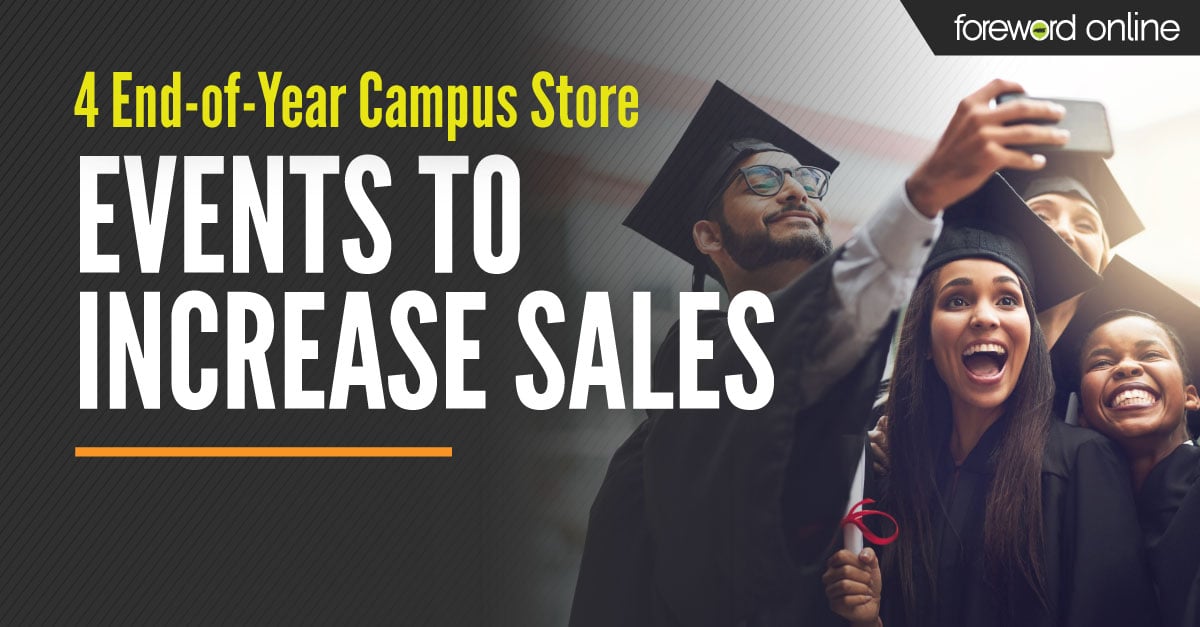Collegiate retail events build campus relevance. With excellent planning, campus stores can host events with a strong return on investment and become staples in campus life. We’ve culled advice from collegiate retail experts nationwide and found three proven best practices for planning successful bookstore events.

1. Consult business intelligence on past bookstore events
For Tracy Roman, Associate Finance Director of UC Davis Stores, event planning starts with consulting the data. Ms. Roman uses the MBS Dashboard to track success of promotions, book-signings and other events. When she’s developing her budget, she looks for spikes in Dashboard’s real-time analytics of high-level productivity trends. When she spots an uptick in sales, she drills down into the data to find out what caused the increase. If it’s a store event, then she leaves room in the budget for the same event next year.
“I open Dashboard and there are live numbers showing me the peaks from last month,” said Ms. Roman. “I catch sight of something unusual and explore a little further to find out why we sold so much more that day. If it turns out there was an event, I know right away that we need to anniversary that event. We can build it into next year’s budget.”
Ms. Roman found that a February Valentine’s Day sale had performed exceptionally well this year. So, she knew she wanted to budget for it next year. Using data analysis to plan events offers insight into ways UC Davis Stores can further its goals, according to Ms. Roman.
“For us, our primary mission is to serve students,” she said. “Dashboard lets us see whether we’re actually doing that.”.
2. Create campus traditions that customers can include on their calendars
Meagan Sotirokos managers Maggie’s Cards & Gifts, University of Pittsburgh Stores’ standalone gift shop. She garners customer loyalty with monthly events students can add to their calendars. Each gathering includes a vendor presentation, samples of a new product and an opportunity for students to connect in the store’s cozy gourmet food section.
“I do a monthly event called a Sip & See. We sell gourmet tea and food, so we plan a food and tea tasting every month,” said Ms. Sotirokos. “Then, we have a vendor come in, feature their product and talk about it. I have customers that come for that every time.”
Ms. Sotirokos said that the most successful events include a vendor with an excellent story to tell.
“I had a woman who sells local honey recently,” she said. “She had a great event with lots of samples, where she talked about how they get their honey. That was super popular.”
The University of Pittsburgh Stores hosts an annual Open House over the holidays that has become a campus tradition, according to Steven Wilson, The Pitt Shop Manager. He said that recurring events generate word of mouth, a big attendance driver.
“It helps that it’s linked to the holiday,” Mr. Wilson said. “Some of the people who come to Open House definitely have Christmas shopping on their minds. They have friends or family who are either alumni or students and they want to buy them Panthers gear.”
UMBC Bookstore hosts an annual egg hunt that has become famous on campus over the years. UMBC Bookstore Director Erin McGonigle said the egg hunt draws increasing numbers every year, primarily through word of mouth.
“One that’s really popular is our annual spring egg hunt. When it started, we were hiding 20 eggs. Now, we hide 50 because so many come to participate. Inside each plastic egg is a letter that corresponds to a prize. Last year, we went through 49 eggs in 45 minutes," McGonigle said. "I think the most fun part of this event is that there are always one or two eggs at the end that nobody can find. Sometimes a student has picked up an egg and moved it, so no one really knows where they are by the end of the day. All of the associates have to hunt throughout the store to find the missing eggs.”
3. Leave room in the budget for spontaneity
While planning ahead for bookstore events is recommended, many college stores are equally emphatic about allowing for spontaneity. Vincennes University Bookstores Director Karen Faulkner and Marketing Director Aimee Cummings recommend scheduling events in alignment with the school calendar but caution that it’s important to be prepared for an unexpected opportunity.
“Go by the school calendar and make sure you have a timeline,” said Ms. Cummings.
“We sit down and schedule events every month,” said Ms. Faulkner. “But if something happens like our basketball team wins 10 games in a row, then we’ll schedule a little pop up event around that.”
Ms. Faulkner said that one of the store’s most successful events was a last-minute idea.
“The snow cone, popcorn and 20 percent off coupon event was huge,” said Ms. Faulkner. “It was crazy. The students loved those snow cones. We had whole classes coming over. One student would get a snow cone, take it back to class, then the rest of the class would follow. It was something we planned just the week before. I looked at our stats from that day. It was just this little spur-of-the-moment thing. But we gave away 224 snow cones and over 100 bags of popcorn, and we sold over $2,000 worth of clothing in three hours.
The Pitt Shop’s Steven Wilson said he sets aside funds in each month’s budget for what he calls spontaneous “mini events.” He and his associates might plan a simple game with a small prize like a sweatshirt for the winner at the last minute. Then they market the event with low-cost social media advertisements.
“You can set those events up so easily,” Mr. Wilson said. “There’s nothing to lose. A sweatshirt or t-shirt only costs you $20. You don’t need a lot of sell-through for the event to have an excellent return on investment.”
Abide these three practices when you plan next year’s bookstore event calendar. Check the data analytics on recent promotions, consider how you can create campus traditions and leave room in your budget for last-minute ideas. Whether they’re scheduled in advance or the result of a sudden inspiration, events that follow these practices transform the customer experience.





